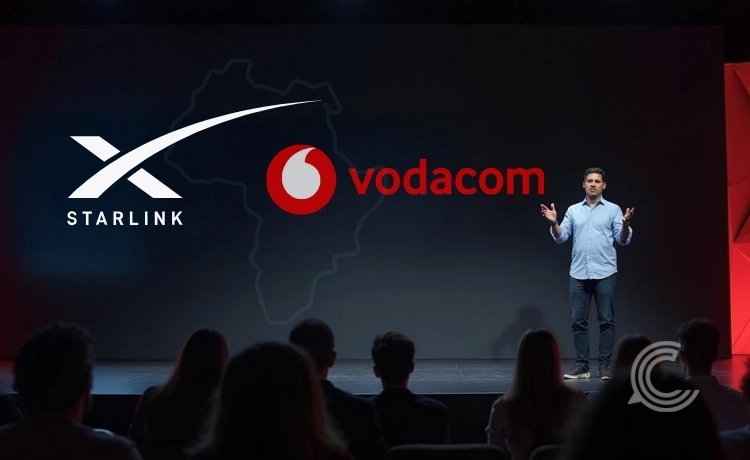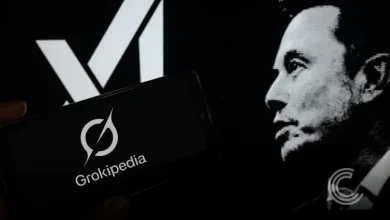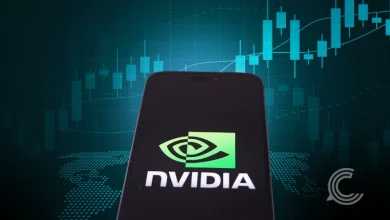Vodacom Partners with Starlink to Deliver High-Speed Internet

Key Points:
- Vodacom has signed an agreement with Starlink to resell its equipment and services to enterprise and small business customers across Africa
- The collaboration aims to accelerate Vodacom’s network expansion in rural areas by integrating Starlink’s satellite backhaul into its mobile network
- The partnership aligns with Vodacom’s Vision 2030 strategy to significantly grow its customer base and financial services presence on the continent
South Africa’s largest mobile operator, Vodacom Group, has entered a landmark agreement with Elon Musk’s satellite communications firm, Starlink. The partnership, announced on Wednesday, is designed to deliver high-speed, low-latency broadband internet to millions of businesses and accelerate network expansion across the African continent.
This strategic alignment leverages Vodacom’s established mobile network infrastructure with Starlink’s advanced Low Earth Orbit (LEO) satellite technology, marking a pivotal moment in the race to bridge Africa’s persistent digital divide.
A Strategic Alliance for Digital Inclusion
The agreement allows Vodacom to resell Starlink equipment and services directly to its enterprise and small business clientele across its African markets. Vodacom’s markets span several countries, including the Democratic Republic of Congo (DRC), Tanzania, Mozambique, and Lesotho, alongside its home market of South Africa. This allows the telecommunications giant to create specialized, localized service packages, which will be crucial for managing the cost and affordability challenges prevalent across the continent.
The agreement comes at a time when traditional African telecom providers have been both wary of and responsive to Starlink’s presence. Starlink, operated by Musk’s SpaceX, has rapidly deployed its satellite constellation, offering speeds often superior to fixed broadband. However, its direct-to-consumer model has faced regulatory and pricing hurdles in various countries. This partnership transforms Starlink from a pure competitor into a vital infrastructure partner for Vodacom.
Boosting Connectivity in Remote Areas
A major component of the deal is the integration of Starlink’s satellite backhaul, the link connecting the mobile mast to the core network, into Vodacom’s mobile network. The company stated that this integration “will accelerate network coverage expansion while increasing network performance in rural areas.”
Connecting remote base stations using Starlink’s LEO satellites is often a more cost-effective and faster solution than traditional terrestrial methods like fiber optic cable deployment or older, more expensive geostationary (GEO) satellite technology. This directly addresses the significant gap in connectivity that leaves a large portion of the African population without reliable internet access, even in areas covered by a mobile signal.
Vodacom says that this collaboration will “deliver robust connectivity to remote schools, health centres, and communities, empowering millions with access to digital services and information.”
Industry Response and Competitive Dynamics
The Starlink Vodacom partnership is the latest example of a growing trend where established mobile network operators are choosing collaboration over conflict with LEO satellite providers. Earlier in 2025, Airtel Africa also announced a deal with Starlink, giving its subsidiary in the DRC a competitive edge. This suggests that Africa’s major telecom players view satellite connectivity as a necessary complementary layer rather than an existential threat.
However, analysts note that Musk’s Starlink still faces pressure from local incumbents and regulatory bodies. For instance, Starlink is not yet officially licensed to operate in South Africa due to local ownership requirements that often mandate a percentage of Black ownership for telecommunications companies. This partnership allows Vodacom to offer Starlink’s high-speed internet to its African markets while navigating the complexities of local regulations.
According to Semafor, experts suggest that for the general consumer, especially in low-income regions, Starlink’s monthly subscription and high hardware cost remain a significant barrier to entry, making mobile operators essential for final connectivity. Vodacom’s strategic move to offer Starlink to the African business broadband segment , mining, oil & gas, agriculture, and financial services , targets customers with both a critical need and a higher capacity to pay for premium, reliable services.
Vodacom’s 2030 Strategy
This agreement aligns with Vodacom’s ambitious Vision 2030 strategy, which aims to grow its customer base to 260 million within five years. As Vodacom Group Chief Executive Officer Shameel Joosub stated, “We are delighted to collaborate with Starlink, a move that accelerates our mission to connect every African to the internet.
Low Earth orbit satellite technology will help bridge the digital divide where traditional infrastructure is not feasible, and this partnership will unlock new possibilities for the unconnected.”



